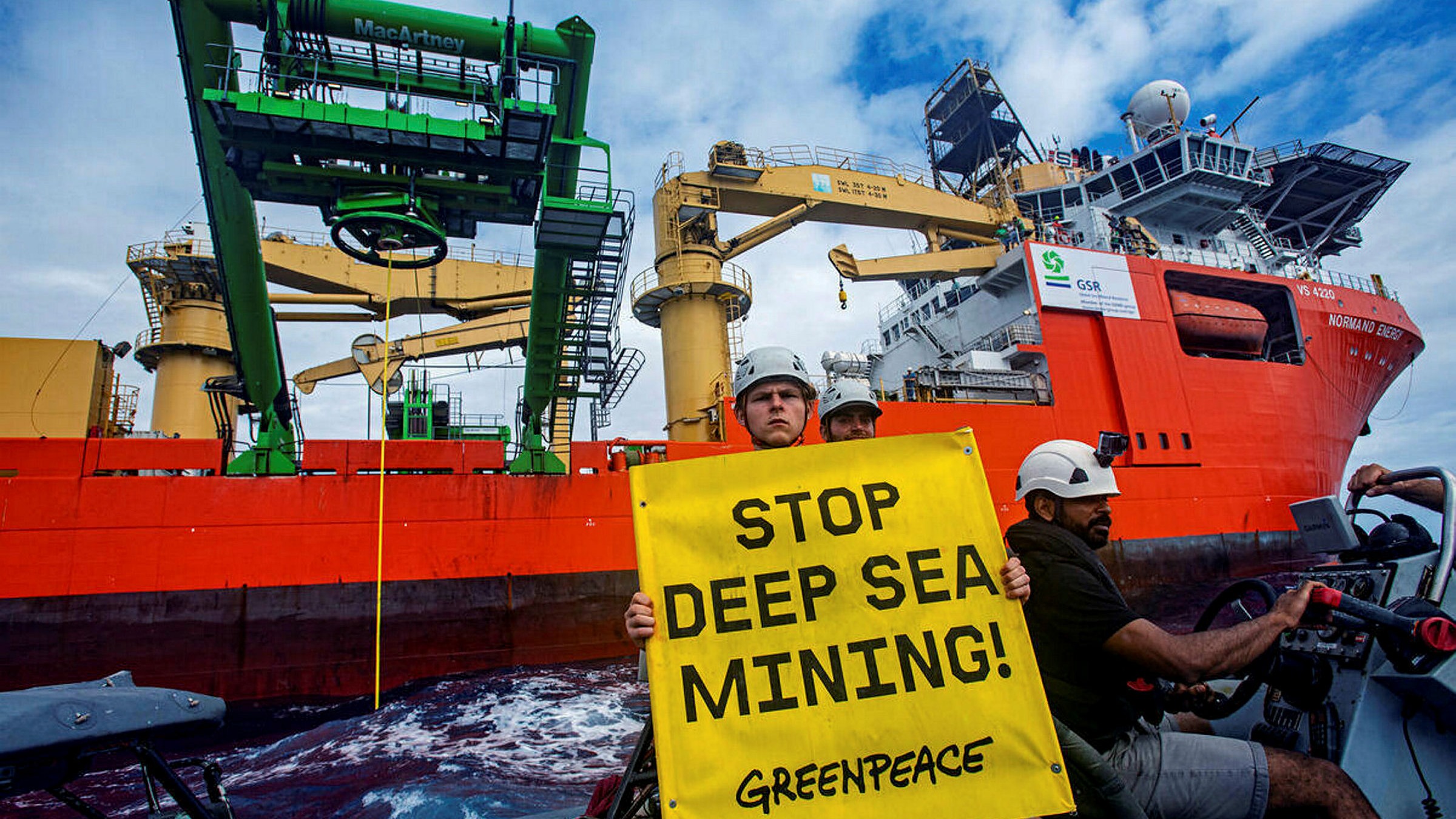Te Ipukarea Society: The potential impacts of deep sea mining on global climate change
Saturday 9 September 2023 | Written by Te Ipukarea Society | Published in Environment, National

Greenpeace activists protest against deep-sea mining in the Pacific. DeepGreen says the deep sea has enough metal to electrify the entire global fleet of vehicles. Picture: Marten van Dijl/Greenpeace/22112550
In the pursuit of valuable minerals and resources, humanity is increasingly turning its attention to the depths of the ocean floor through deep sea mining.
This emerging industry promises economic gains and the possibility of satisfying the growing demand for essential metals.
However, as we delve into the uncharted waters of deep sea mining, we need to carefully consider its potential impacts on the environment, particularly its impacts on the health of our ocean, our greatest ally against climate change.
This article descends into the complex interplay between deep sea mining and climate change.
Deep sea mining involves extracting valuable minerals from the ocean floor, which is rich in minerals like manganese, cobalt, and nickel, used extensively in modern technology.
The process will involve large remotely operated mining machines that scrape and collect mineral-laden nodules from the seabed, disturbing a habitat that has remained relatively untouched for millions of years.
Potential impacts on climate change could be caused through:
- Carbon storage: Deep sea ecosystems play a significant role in sequestering carbon dioxide, a key greenhouse gas responsible for global warming. These ecosystems capture and store carbon in the sediments, helping mitigate the impacts of climate change. The disturbance caused by mining activities will almost certainly release stored carbon into the water column, potentially contributing to the acceleration of climate change.
- Biodiversity Loss: Deep sea habitats are home to unique and often undiscovered species. The disturbance caused by mining operations will lead to habitat destruction and biodiversity loss, disrupting the delicate balance of these ecosystems. This loss of biodiversity could have cascading effects on the carbon cycle and the ability of marine ecosystems to regulate climate.
- Sediment Plumes and Ocean Health: Mining operations create sediment plumes, both during the actual mining process on the seabed, as well as from the discharge of the waste material from the ship during the dewatering process. These plumes can spread over large distances, affecting water quality and marine life. They can smother organisms on the seafloor and disrupt the feeding and reproductive behaviors of various marine species. The increased turbidity could also hinder the growth of phytoplankton, which are vital for carbon sequestration through photosynthesis.
While the potential impacts of deep sea mining on climate change are concerning, proponents of the industry argue that it could provide access to essential minerals required for renewable energy technologies, such as lithium-ion batteries and offshore wind turbines. These technologies can assist our transitioning to a low-carbon future and reduce our reliance on fossil fuels. However, the irony lies in the fact that mining for these minerals could contribute to the very problem they aim to solve – climate change.
Meanwhile, new technology is rapidly being developed that uses different minerals for this transition, metals that are much easier and cheaper to mine, such as iron and phosphate. There are also substantial quantities of the deep sea minerals such as cobalt that could be mined from landfills around the world, where we have been dumping our old batteries and electronics for decades. Given the risk of deep sea mining to our ocean health and climate, the deep sea should be the last place we look to for minerals for a green transition.
As we stand on the edge of a new frontier – the depths of our oceans – it is imperative that we act with caution and a better understanding of the potential consequences of deep sea mining.
While offering access to valuable minerals, it carries with the very likely impact of exacerbating climate change through disruptions to carbon sequestration, biodiversity loss, and habitat destruction. We need to remember that it is is not money, but a healthy environment that will ensure our survival and that of our future generations in the face of climate change.















































